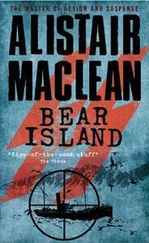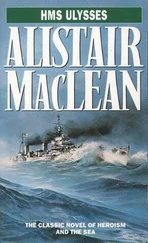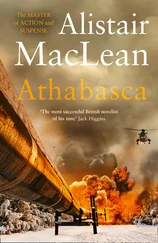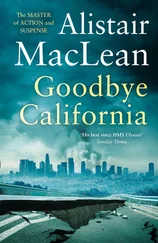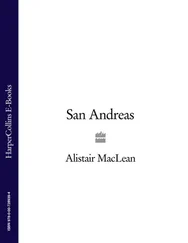“Of course.”
“You took a chance bringing Sergius with you here.” “Apart from the fact that he insisted, I’d have taken a damned bigger chance if I hadn’t. That would have been the one thing calculated to rouse his suspicions.”
“And he’s not? Suspicious, I mean?”
“The last thing that would occur to Colonel Sergius is that anyone would ever be misguided enough as to pick his parish as a place to commit suicide.”
“Money?”
“In your other inside pocket.”
“It’s freezing outside.”
“There’s a nice warm coat in the car.” Harper smiled.
“You’re going to love it.”
Bruno nodded to the open coffin. “That?”
“Will be weighted and the lid screwed down during the night.
We will bury you on Monday morning.”
“Can I send me a wreath?”
“That would not be advisable.” Harper smiled thinly. “You can always, of course, mingle discreetly with your mourners.” Forty minutes later Bruno was in his hotel room, unpacking, his eyes straying occasionally towards the nice warm coat that Harper had so thoughtfully provided. It was made of thick brushed nylon, in black and white wavy vertical stripes, and looked for all the world like a four thousand guinea chinchilla. Indisputably, it was the only one of its kind in Crau and, likely enough, for some hundreds of miles around, and the stir he had caused strolling through the lobby to the reception desk had been more than considerable: when the effect of his coat was added to the fact that he had had it carelessly flung open to reveal the sartorial rainbow of his suiting beneath it was understandable that hardly anyone had bothered to give his face a first glance, far less a second one.
Bruno put out the light, eased the curtain, opened the window and leaned out. His room was at the back of the hotel, overlooking a narrow warehouse-lined lane. It wasn’t quite in total darkness but it wasn’t far from it either. Less than four feet away were the steps of a fire-escape, the easy and, in combination with the darkened lane, the perfect way to leave the hotel. Too easy, too perfect.
In line with Harper’s advocated policy of non-concealment, Bruno went down to the hotel dining-room for dinner, carrying under his arm an East Berlin newspaper, dated that day, which he had found in his case. Harper was a man to whom the most insignificant detail could be of importance. Where he had obtained it Bruno had no means of knowing. His entrance did not cause any notable sensation — the citizens of Crau or visiting firemen were too well-mannered for that. But the raised eyebrows, the smiles, the whispers were evidence that his presence had not gone unnoted. Bruno looked casually around. There was nobody in sight who looked remotely like a secret police agent, although there was little comfort in that: the best agents never did. Bruno ordered his meal, then buried himself in his newspaper.
At eight o’clock the following morning Bruno was once more in the dining-room, again reading a paper but this time a local news-sheet. The first thing that caught his attention was a large black-bordered box — the borders were half an inch thick — in the centre of the front page. From this he learnt that he had died during the night. The grief was profound for circus lovers the world over but nowhere, of course, as keenly felt as in Crau. There was much sentimentalizing and philosophical sorrowing over the machinations of a strange fate that had brought Bruno Wildermann home to die. He was to be buried at 11 a.m. on Monday. It was hoped that large numbers of the citizens of Crau would turn out to pay their last respects to their city’s most illustrious son, the greatest aerialist of all time. Bruno took the paper back up to his room after breakfast, found scissors and cut out the black-bordered article, which he carefully folded and placed in an inside pocket. Late that afternoon Bruno went shopping. It was a cold and sunny day and he had left his fur coat in his room. This he had done neither because of the weather nor because of any innate bashfulness. It was just too bulky to be carried inconspicuously, however well it might have been wrapped up. This was the town that Bruno knew better than any in the world and he could have shaken off any shadower without even half thinking about it: it took him less than five minutes to know that he was not being followed. He turned down a side street, then into an even meaner street, little more than a lane, and entered the shop of a haberdasher for whom Savile Row must have lain on the far side of Paradise: even the best clothes it had for sale could not have qualified for the description of second-hand. The proprietor, an elderly stooped man, whose watery eyes swam behind thickly pebbled glasses — although it seemed an extremely remote possibility that the oldster would ever be called upon to identify him Bruno doubted whether he could have identified members of his own family, if any — had a unique but eminently practical way of displaying the wares he had for sale. The articles of clothing were piled in untidy heaps on the floor, jackets in one pile, trousers in another, coats in another, shirts in another, and so on. Ties were conspicuous by their absence.
When Bruno emerged it was with a bulky and exceedingly grimy brown paper parcel roughly tied with some frayed twine. He made his way to the nearest public conveniences and when he emerged his transformation was complete. He was clad in ill-fitting, patched and ancient clothes, wholly disreputable, not the sort of person the average citizen would approach within yards of, far less associate with: the grimy crumpled beret was two sizes too large and fell over his ears: the dark raincoat was irreparably stained, the trousers baggy beyond belief, the creased, once-navy shirt tieless and the heels of the scuffed shoes so worn down at the back that they lent him a peculiarly rolling gait. To complete matters he was surrounded by a powerful aura that afflicted people at a distance of several yards: to keep lice, fleas and other forms of wild life at bay the haberdasher was a great believer in drenching every article of apparel with a disinfectant that was as vile-smelling as it was powerful.
Clutching his brown parcel under his arm, Bruno made his leisurely way across town. Dusk was beginning to fall. He took a short cut through a large park, a section of which was given over for use as one of the city’s cemeteries. Passing by an opened iron gate in the high wall that surrounded the cemetery, he was intrigued to see two men busily digging by the light of a pair of storm lanterns. Intrigued, he approached the spot and as he did two men, standing in an as yet shallow grave, straightened up and rubbed clearly aching backs.
“You work late, comrades,” Bruno said sympathetically. “The dead wait for no man,” the elder grave-digger said in a sepulchral voice, then peering more closely, added: “Some of us have to work for a living. Do you mind standing to the other side of the grave?”
The light wind, Bruno realized, was wafting his presence across the grave. He moved round and said: “And whose last resting place is this?”
“A famous American, though he was born and brought up in this town. I knew his grandfather well. A Wildermann, he is. He was with a circus — the circus — in the Winter Palace. Killed in an accident. It’ll be a big day here on Monday, with Johann and myself in our best suits.”
“An accident?” Bruno shook his head. “One of those damnable buses, I’ll be bound. Many’s the time —” The younger man said: “No, you old fool. He fell off a wire in the circus and broke his neck.” He jammed his shovel into the sandy soil. “Do you mind? We have work to do.” Bruno mumbled his apologies and shambled away. Five minutes later he was in the Hunter’s Horn, where he had to show his money to a nose-wrinkling waiter before being served coffee. After about fifteen minutes Maria appeared in the doorway, looked around, clearly failed to recognize anybody, hesitated and moved off again. Bruno rose leisurely and rolled his way towards the door. Once in the street he lengthened his stride without increasing his pace and within a minute he was only a few feet behind her.
Читать дальше
Конец ознакомительного отрывка
Купить книгу

